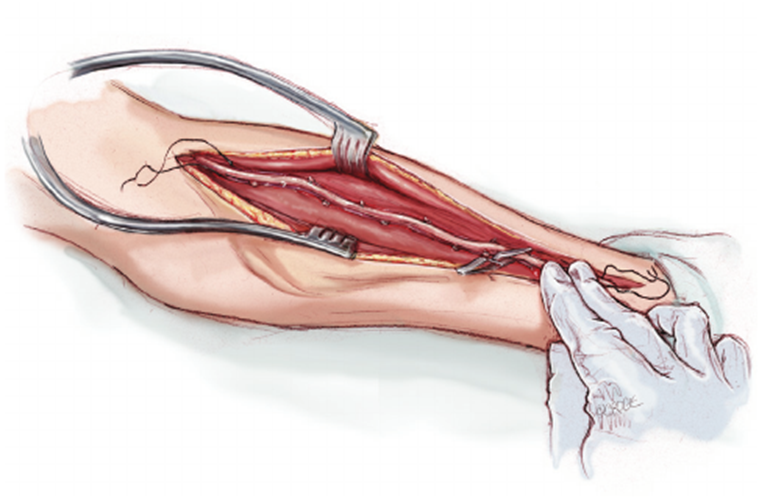A nurse is reinforcing discharge teaching with a client about how to care for a newly created ileal conduit. Which of the following instructions should the nurse include in the teaching?
Change the ostomy pouch daily.
Empty the ostomy pouch when it is 2/3 full.
Trim the opening of the ostomy seal to be 1/2 inch wider than the stoma.
Apply lotion to the peristomal skin when changing the ostomy pouch.
The Correct Answer is B
Choice A reason: Changing the ostomy pouch daily is not typically necessary. Most pouches can be worn comfortably for several days before needing to be changed. Frequent changes are not only unnecessary but can also irritate the skin around the stoma.
Choice B reason: Emptying the ostomy pouch when it is 2/3 full is recommended to prevent leaks and overfilling, which can lead to discomfort and potential skin irritation. It is important to monitor the fullness of the pouch and empty it regularly to maintain hygiene and comfort.
Choice C reason: Trimming the opening of the ostomy seal to be 1/2 inch wider than the stoma is incorrect. The opening should be cut to match the size of the stoma to ensure a snug fit that prevents leakage and protects the skin around the stoma.
Choice D reason: Applying lotion to the peristomal skin when changing the ostomy pouch is not advised. Lotions or creams can interfere with the adhesive of the ostomy appliance and should be avoided. The peristomal skin should be clean and dry to ensure proper adhesion of the ostomy appliance.
Nursing Test Bank
Naxlex Comprehensive Predictor Exams
Related Questions
Correct Answer is A
Explanation
Choice A reason: Checking the pulse distal to the graft is essential to ensure that the graft is patent and that there is adequate blood flow to the distal extremity. A palpable pulse indicates that the graft is functioning properly and not occluded. The absence of a pulse could signify a serious complication, such as thrombosis or stenosis, which requires immediate attention.
Choice B reason: Keeping the left forearm below the level of the heart is not recommended as it can increase venous pressure and swelling, potentially compromising graft function. The extremity should be kept at or above heart level to promote venous return and reduce the risk of edema.
Choice C reason: Collecting blood specimens from the graft is generally avoided to prevent damage to the graft. Blood draws can be performed from other sites to protect the integrity of the graft.
Choice D reason: Splinting the left forearm is not a standard postoperative care measure for an arteriovenous graft. While protecting the graft from injury is important, immobilization with a splint is not necessary and can impede mobility and circulation.

Correct Answer is B
Explanation
Choice A reason: Changing the ostomy pouch daily is not typically necessary. Most pouches can be worn comfortably for several days before needing to be changed. Frequent changes are not only unnecessary but can also irritate the skin around the stoma.
Choice B reason: Emptying the ostomy pouch when it is 2/3 full is recommended to prevent leaks and overfilling, which can lead to discomfort and potential skin irritation. It is important to monitor the fullness of the pouch and empty it regularly to maintain hygiene and comfort.
Choice C reason: Trimming the opening of the ostomy seal to be 1/2 inch wider than the stoma is incorrect. The opening should be cut to match the size of the stoma to ensure a snug fit that prevents leakage and protects the skin around the stoma.
Choice D reason: Applying lotion to the peristomal skin when changing the ostomy pouch is not advised. Lotions or creams can interfere with the adhesive of the ostomy appliance and should be avoided. The peristomal skin should be clean and dry to ensure proper adhesion of the ostomy appliance.
Whether you are a student looking to ace your exams or a practicing nurse seeking to enhance your expertise , our nursing education contents will empower you with the confidence and competence to make a difference in the lives of patients and become a respected leader in the healthcare field.
Visit Naxlex, invest in your future and unlock endless possibilities with our unparalleled nursing education contents today
Report Wrong Answer on the Current Question
Do you disagree with the answer? If yes, what is your expected answer? Explain.
Kindly be descriptive with the issue you are facing.
